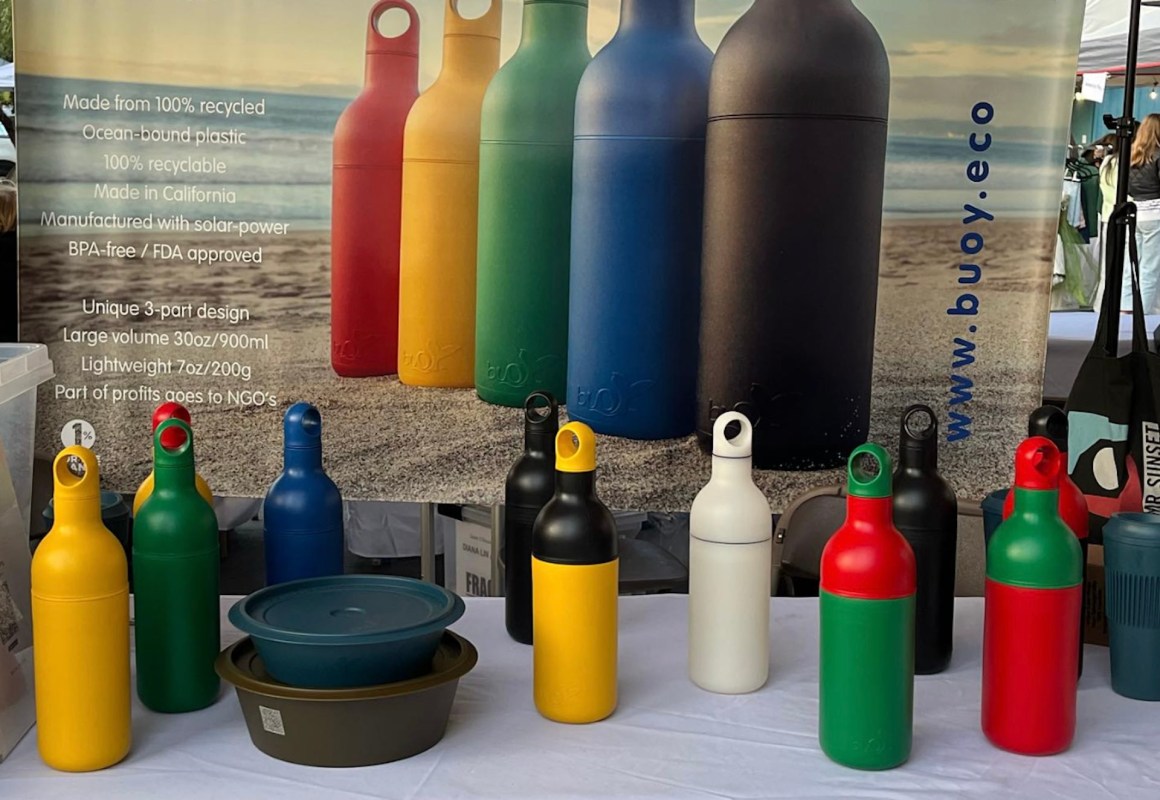One company has taken inspiration from the interconnectedness of nature to create a refreshing solution for ocean-bound plastic.
United States-based startup Buoy has developed a first-of-its-kind water bottle made entirely from food-safe plastic that was at risk of ending up in our waters, and the production process eliminates more potential planet-warming pollution than it creates.
"If you credit our containers with the plastic saved from incineration by being collected, Buoy containers are net carbon negative," Buoy co-founder and COO Adrian Colesberry told The Cool Down, noting that most reusable plastic bottles only contain at most 30% recycled plastic.
"Manufacturers resist working with 100% recycled plastic because it's more difficult, but we persisted in finding production and supply chain partners," he added.
The dishwasher-safe bottles, which come in an array of vibrant colors, are manufactured from material that never held toxic chemicals, including old milk and juice containers.
Meanwhile, the company's facility in California uses solar power, a type of clean energy that doesn't release pollution linked to dangerous rising global temperatures and food supply shortages.
Civilizations have been constructing liquid-holding containers for thousands of years, but the first reusable plastic water bottle wasn't made until the 1940s. Stainless steel products were eventually considered a better alternative, in part because of durability, per the New York Times.
Swapping single-use plastic for some type of reusable bottle is certainly better for our planet, but Buoy has uniquely taken into account multiple long-term factors in its quest to do something meaningful about plastic pollution — inspired partly by founder and CEO Rene Hallen's experiences as a free diver.
The amount of plastic in our oceans is "equivalent to dumping the contents of one garbage truck into the ocean every minute," according to the World Economic Forum, releasing toxins into the environment and killing marine life.
Burning plastic isn't a healthier solution, and producing stainless-steel bottles is an energy-intensive process, as Colesberry pointed out.
"China uses blast-furnace manufacturing, which can use very small amounts of recycled steel, if it uses any at all," Colesberry told The Cool Down. "Based on production energy and transport, a two-pound stainless-steel bottle would have to last for 112 years to equal the active carbon footprint of a Buoy bottle you replaced every three years."
Buoy intends for customers to send back old or damaged products to be repurposed, helping to break the cycle of plastic pollution. It also has plans to expand operations, with reusable food containers next on the agenda.
"We have tilted up operation in Mammoth Lakes, the ski resort; and at Ohlone College in Fremont, California; and are preparing Berkeley, Culver City, Encinitas, and two islands of Hawaii," Colesberry said. "The system has just been adopted by Ohlone College, where they are piloting it on their chicken teriyaki bowls before scaling it to the rest of the menu."
Join our free newsletter for weekly updates on the coolest innovations improving our lives and saving our planet.









